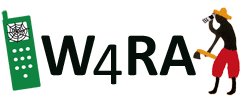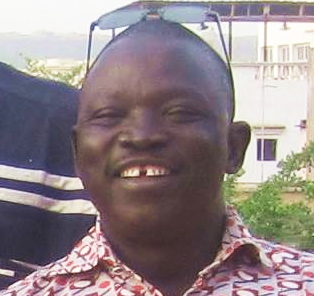Since 2011 Anna Bon, and other researchers in the W4RA team (VU Network Institute, Computer Science Department, Centre for International Cooperation, DISE team) have worked with farmer organizations in Mali to help improve the efficiency of the seed value chain, to support local smallholder farmers and contribute to food security in this country.
The seed value chain in Mali is a complex one. It is on one hand traditional, in which farmers exchange seeds with each other without financial transactions. On the other hand there is a system of commercial, certified, improved seeds. The traditional value chain consists of local seeds that have lower yields than the improved seeds. Still, many farmers rely on them, as they are available without investments, no pesticides are necessary. They are resistant to drought and can be — in contrast to the hybrid seeds that only breed two or three generations– replanted/reused without limitations. They are the basis of the daily food consumption for large part of the population.
The hybrid, improved seeds are interesting for farmers, as they givehigher crop yields, and they can be sold on official commercial markets. They give farmers the opportunity to invest and earn financialrevenues. Unfortunately, the seed value chain for hybrid seeds is still inefficiently organized. It is hampered by a lack of information and by inefficient channels for communication, which makes deliberate and informed decision-making difficult. For many smallholder seed producing farmers this is a serious problem. Farmers do not have access to market information; they have difficulties in finding customers and are often not up to date about market prices.
Seed producers — usually smallholders — exchange, buy, produce and sell seeds. Some years they are suddenly confronted with a lack of demand for the seeds they have produced, especially in the occasional good rainy season and a good harvest. Especially farmers in rain-fed agriculture, in remote regions are the most vulnerable for price and demand fluctuations.
AOPP, — an association of farmer organizations that reaches up to 3 million people in the whole of Mali — is concerned with the condition of their member OPs (organisations paysannes). AOPP as a national umbrella organization supports about 250 local farmer organizations, representing them at the national level, trying to enhance communication and provide them with timely, accurate and relevant information from all segments of the value chain. To improve communication, AOPP is now developing an online seed information system.
Our research project uses a participatory action research/design science research approach, based on fieldwork in Mali. It starts with a context analysis, to understand the problem, the stakeholders and their concerns, the current information workflows and the barriers as expressed by the stakeholders. This is done using a design science/action research-based framework, named ICT4D 3.0.
Based on the collected context information and extensive, collaborative use case and requirements analysis in Mali, (done in 2019 – 2021) the VU research team is designing, together with the local farmers, the architecture of a voice-based market information system for farmers in Mali. The user and technical requirements of this system are: it has to work, also in an environment without internet or smartphone, and only GSM voice-based phones. It has to have a spoken interface, in French and in at least one Malian local language: Bambara. It has to be a technically stable and financially affordable system, in simple words, it has to survive the rural conditions of e.g. dust, heat, lack of local technical assistance, without being too expensive in its use for the local users.
The VU team supports AOPP’s efforts by designing, in co-creative workshops, new channels for communication and e.g. mobile and voice-based access to seed information.
This year master student Lucas de Lange studied these food security value networks in Mali using a value modeling approach. He looked at the two different systems and analyzed them using e3-value to compare the different business models.
Master student Spiridhula Zguri built an interface to the seed information system, to facilitate access to the data on production of seeds.
This year we will start a supply-chain tracking system to enhance the transparency and the certification in the seed value chain. We will also work with Labosem, the national laboratory that certifies the seeds in Mali.
Also we want to explore if an AI agent-based decision support system could help identify the barriers in the value chain, and predict how the system would work as a distributed network, when decentralized decision-making at the aggregated level will lead to different configuration of the entire value chain.
Future work will also be on blockchain technology and smart contracts, to help make the network more transparant, e.g. by removing the middlemen, or e.g. making financial transactions based on local community currency.
These are all projects and plans that are being done in close collaboration with the AOPP and the farmer organizations themselves. The research project is ongoing. With the longstanding socio-technical field experience of VU in ICT4D in rural Africa, this will continue as an important, relevant, real-world research project, carried out in the framework of the W4RA research program.
Read more about AI to enhance the seed value chain in Mali:
The following master theses and publications have been produced in this research program:
George Vlad Stan. “Small” language limited-vocabulary automatic speech recognition using Machine Learning. Master thesis Computer Science 2021. Vrije Universiteit Amsterdam. August 2021. [Thesis] [Presentation].
Spiridhula Zguri. Designing Food Information Systems for Rural Africa: User-Centric Design Methods for Complex Contexts. Master thesis Information Science 2021. Vrije Universiteit Amsterdam. August 2021. [Thesis PDF]. [Presentation].
Lucas de Lange. Uncovering food security value networks in West-Africa using a value modeling approach. Master thesis Information Science 2021. Vrije Universiteit Amsterdam. August 2021. [Presentation slides] [Thesis PDF].
Sophie Vos, Hella Schaefers, Patricia Lago, Anna Bon. Sustainability and Ethics by Design in the Development of Digital Platforms for Low-Resource Environments. December 2020. Amsterdam Sustainability Institute Integrative Project. Technical Report. Vrije Universiteit Amsterdam. [PDF].
Sophie Vos, Hella Schaefers, Patricia Lago, Anna Bon. Towards Sustainability and Equality in Digital Development – A case study of the cereal seed value chain in rural Mali. October 2020. In press. IFIP WG 9.4 [PDF].
This ongoing project on the Seed Value Chain in Mali by AOPP together with the W4RA team is made possible through a grant from the Dutch Ministry of Foreign Affairs, in the framework of a Nuffic OKP project (RC/0019/0026).
Interesting background literature:
Coulibaly, Mohamed, Priscilla Claeys, and Anne Berson. “The Right to Seeds and Legal Mobilization for the Protection of Peasant Seed Systems in Mali.” Journal of Human Rights Practice 12.3 (2020): 479-500.
The research project is ongoing. With the longstanding socio-technical field experience of VU in ICT4D in rural Africa, this will continue as an important, relevant, real-world research project, carried out in the framework of the W4RA research program.
Read more about AI to enhance the seed value chan in Mali:
This ongoing project on the Seed Value Chain in Mali by AOPP together with the W4RA team (VU and Bolesian), is made possible through a grant from the Dutch Ministry of Foreign Affairs, in the framework of a Nuffic OKP project (RC/0019/0026).




